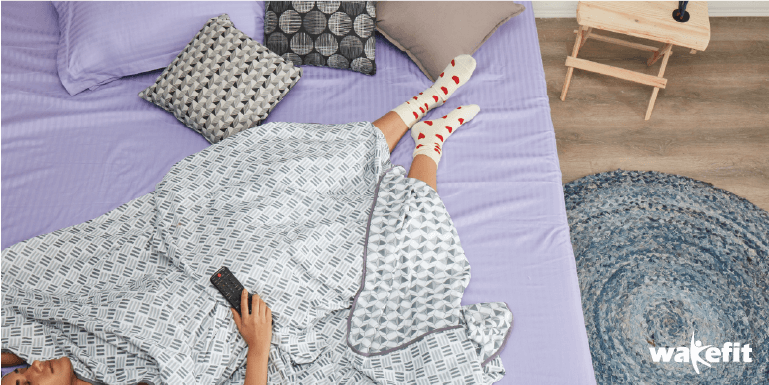Acne and sleep, the relationship between the two runs deep. When we are deprived of rest, because of stress mainly, a lot of bodily reactions take place. These reactions, in turn, cause hormonal imbalances that can lead to or worsen skin conditions, the most common one being acne.
Inflammation is the body that first shows up on our skin in the form of red blotches. If this is not taken care of through sleep, a healthy diet, etc., the inflammation can even damage the collagen and elastin in the skin.
When we sleep, our body releases melatonin. This is a natural antioxidant for our skin. It locates skin damages and tries to cure them before they can harm skin cells. Because of this, people with acne find their condition worsening when they do not get the required hours of uninterrupted sleep.
Our body repairs itself during sleep. Unhealthy sleep results in oxidative changes that soon lead to skin disorders. Hydration becomes another crucial factor for better sleep so that the body can repair the skin and keep acne under control. During the night, our body is more susceptible to water loss through the skin pores. The hydration, however, has to be both internal and external. For this, consider investing in night cream and substitute caffeinated drinks and alcohol with water during the hours before bed.
There are ways too that can help you treat your acne through good sleep, which includes both the duration of your sleep and the quality of it. Here are three habits that you can cultivate immediately to battle acne through good sleep.
Acne and sleep: How to control it
- Blocking out distractions
By disconnecting from the virtual world and unplugging from all that’s unnatural, you prepare your body and your mind for sleep.
Sleep experts around the world suggest that steering clear of electronic devices at least an hour before sleep, helps you fall asleep faster as well as get good quality sleep. This is because the blue light from electronic screens fool our brains to believe it is still day time. As a result, melatonin isn’t secreted which wrecks your sleep and ruins the health of your skin.
- Manage stress
Stress is notorious for causing bad sleep and bad skin health. To treat both, you can include various sleep rituals into your routine. The time before sleep when you disconnect and unplug with the outside world can be used to connect with yourself.
Some of these rituals are journaling, reading a book, listening to calming music, meditating, practicing gratitude, flossing and taking a warm shower, drinking a cup of chamomile tea, etc.
- Change your bedding
Usually, a bed that does not fulfill your sleep requirements goes unnoticed as a culprit for sleep deprivation. If you do not have stress-related issues, and yet cannot sleep well, chances are that your bed and/or pillow aren’t supporting you.
Wakefit’s memory foam mattress and pillow are designed to put you to sleep. These conform to your body shape, thus preventing the creation of pressure points in your body. Our products also ensure that your neck and spine remain naturally aligned when you sleep, thus avoiding postural defects in the future.
Wakefit products are also hypoallergenic. As a result, your sensitive skin will receive the care it deserves while you nap comfortably.
Did you find this post on acne and sleep helpful? Let us know in the comments below.




No Comments